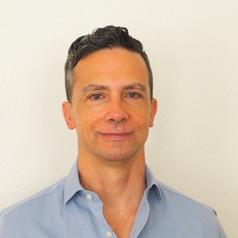
Loïc Simonet
Researcher at the Austrian Institute for International Affairs, Österreichisches Institut für Internationale Politik (OIIP)
Depuis juin 2021 : Chercheur à l’Institut autrichien des affaires internationales (Österreichisches Institut für Internationale Politik – OIIP).
Déc. 2013-Juin 2021 : Senior External Co-operation Officer au cabinet du Secrétaire général de l’Organisation pour la Coopération et la Sécurité en Europe (OSCE), à Vienne (Autriche) ; officier de liaison de l’OSCE auprès de l’UE et de l’OTAN à Bruxelles.
Juin 2008 – Déc. 2012 : Conseiller politico-militaire à la Représentation permanente de la France auprès de l’Organisation pour la Sécurité et la Coopération en Europe (OSCE), à Vienne (Autriche).
2004 – 2008 : Chef de bureau adjoint, puis en 2007 chef par intérim, du bureau du droit international public à la Direction des affaires juridiques du ministère de la Défense (Paris, France).
• Auteur de deux ouvrages parus aux éditions Pedone (Paris) :
- Le Traité sur le commerce des armes, 2015, 220 p.
- Les pipelines en droit international et dans les relations internationales, 2021, 352 p.
• Publications de plus de 40 articles sur des sujets de droit international, de droit et de géopolitique de l’énergie et de sécurité internationale (RGDIP, AFDI, OSCE Yearbook, Annuaire du droit de la mer, Défense nationale, Revue internationale et stratégique, Revue des affaires européennes, Revue de l’énergie, Questions internationales, Géoéconomie, etc.)
• Collaboration régulière avec le Collège de l'OTAN à Rome, l’Ecole de l’OTAN à Oberammergau (Allemagne) et l’Académie diplomatique de Vienne.
Less ![]()
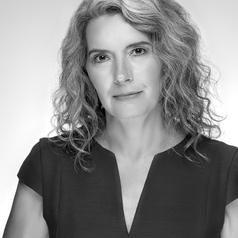
Lois Harder
Dean of Social Sciences and Professor of Political Science, University of Victoria
My research focuses on Canadian citizenship law and the law and politics of the family. I have recently published a sole authored book: Canadian Club: Birthright Citizenship and Belonging (University of Toronto Press, 2022), and a co-edited collection: Neoliberal Contentions: Diagnosing the Present (University of Toronto Press, 2023).
Less ![]()

Lois Surgenor
Professor in Psychological Medicine, University of Otago
Professor Lois Surgenor's research interests are in the area of eating disorders, psychological aspects of long-term and life-shortening medical conditions, and health workforce well-being and regulation.
She publishes in a variety of fields including eating disorders, rehabilitation, and workforce health. Professor Surgenor supervises research projects across a range of health and mental health areas. She encourages students to contact her directly to discuss possible research proposals and supervision.
Professor Surgenor is the Associate Dean (Academic) in the Health Sciences Division. She is Associate Editor of the Journal of Eating Disorders and on the Editorial Board of Eating Disorders, Journal of Treatment and Prevention.
She served on the NZ Psychologist Board between 2002–2011 and previous chair of the Health Regulatory Authorities of New Zealand.
Professor Surgenor is course convenor of a number of postgraduate papers including
Less ![]()
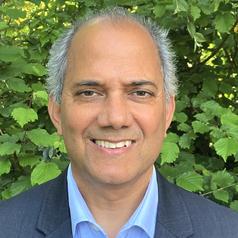
Lokesh Joshi
Stokes Professor of Glycosciences, University of Galway
Prof. Lokesh Joshi is the Stokes Professor of Glycosciences at the University of Galway, Ireland. His research examines the role of proteins and carbohydrates during health and disease states in chronic diseases and infections. He is the founder of an environmentally conscious medical technology company, Aquila Bioscience, which is developing nature-inspired pathogen capture and decontamination technology as a safer alternative to chemicals that are harmful to people and the planet.
Less ![]()

Lolita Alfred
Lecturer in Mental Health, School of Health and Psychological Sciences, City, University of London
Lolita Alfred is a lecturer with an interest in emotional health and well-being, substance use, and employee well-being. She qualified as a registered mental health nurse in 2004, and her professional practice has been based mainly on the areas of forensic mental health, public health, and academia.
Less ![]()
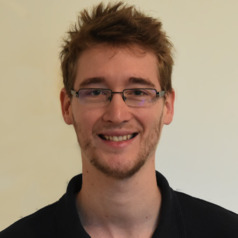
Lonni Besançon
Assistant Professor in Data Visualization, Linköping University
Lonni Besançon is an Assistant Professor in Visualization research at Linköping University. His main research interests lie in 3D interaction with volumetric data, immersive analytics, visualization of statistical data, methodological research, and open science.
Less ![]()
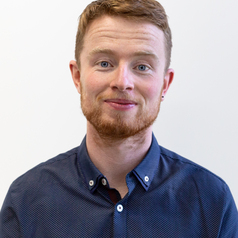
Lorcan Conlon
PhD student, Quantum Science & Technology, Australian National University
Lorcan Conlon is a PhD student in the Quantum Science & Technology department of the School of Physics at Australian National University.
Less ![]()

Lorelei Kelly
Research Lead, Modernizing Congress, McCourt School of Public Policy, Georgetown University
Less ![]()
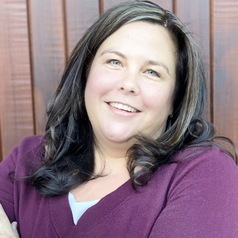
Lorelli Nowell
Associate Professor and Assistant Dean of Graduate Programs, Faculty of Nursing, University of Calgary
Dr. Lorelli Nowell is an Associate Professor and Assistant Dean Graduate Programs in the Faculty of Nursing at the University of Calgary, Calgary, Alberta, Canada. She holds a Teaching and Learning Research Professorship focused on studying innovations in teaching and learning, professional learning and development of educators, and mentorship to support teaching and learning practices. She has a strong mixed methods research background and numerous interdisciplinary and international collaborations which have fostered meaningful contributions to the field of teaching and learning. She presents her work locally, nationally, and internationally, and publishes her research in high impact, peer reviewed journals as well as public forums.
Less ![]()
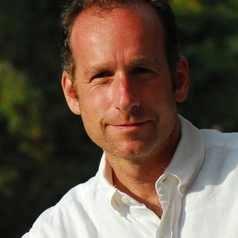
Loren B Landau
Research Chair on Mobility & the Politics of Diversity. Migration; Urbanisation; Refugees; Xenophobia, University of the Witwatersrand
Loren B Landau is the South African Research Chair in Human Mobility and the Politics of Difference. Formerly the founding director of the African Centre for Migration & Society at the University of the Witwatersrand (which now hosts the chair), his work explores the relationships among human mobility, citizenship, development, and political authority. Along with his academic responsibilities, he has served as the chair of the Consortium for Refugees and Migrants in South Africa (CoRMSA), is a member of the South African Immigration Advisory Board and of the editorial boards of International Migration Review, Migration Studies, and the Journal of Refugee Studies. He has consulted with the South African Human Rights Commission, the United Nations High Commissioner for Refugees, the UNDP, the French Development Agency (AFD), Oxfam, and others. He holds an MSc in Development Studies (LSE) and a PhD in Political Science (Berkeley). Widely published in the academic and popular press, he is author of The Humanitarian Hangover: Displacement, Aid, and Transformation in Western Tanzania (Wits Press), co-editor of Contemporary Migration to South Africa (World Bank), editor of Exorcising the Demons Within: Xenophobia, Violence and Statecraft in Contemporary South Africa (UN University Press/Wits Press) and has published in Millennium, Politics & Society, the Journal of Ethnic and Migration Studies and elsewhere.
Less ![]()
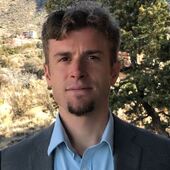
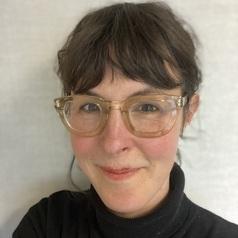
Loren Gaudet
Assistant Teaching Professor, Academic and Technical Writing Program, University of Victoria
Dr. Loren Gaudet is an Assistant Teaching Professor in the Academic and Technical Writing Program at the University of Victoria. Her research and teaching focuses on first-year writing, specifically, fostering belonging in the writing classroom by leveraging existing institutional resources, and on the rhetoric of health and medicine, specifically, the rhetorical history of Lyme disease. Her academic work has appeared in Discourse and Writing/Rédactologie, BMJ's Medical Humanities, Health, and the Journal of Medical Humanities. She has also co-authored open educational resources including sections of STEM Writing Resources for Learning (ScWRL) and Why Write? A Guide for Students in Canada.
Less ![]()
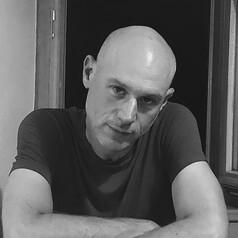
Loren D. Marsh
Research Fellow, Humboldt University of Berlin
I'm a research fellow in classics at Humboldt University of Berlin working on my second book on Aristotle's Poetics, and the author of "Muthos: Aristotle's Concept of Narrative and the Fragments of Old Comedy" (V&R, 2021). As a writer and director, I recently completed my third independent feature film "Night to be Gone", released earlier this year, and am currently in pre-production on "F for Fittko", about my German family's work in the resistance during the war.
Less ![]()
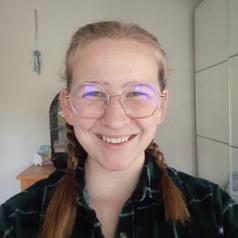
Loren N. Bouyer
PhD Student, Neuroscience, The University of Queensland
I graduated from the University of Queensland with class 1 honours in 2023. My thesis focussed on finding an objective measure for the intensity of imagination. I have presented a poster at the Australasian Brain and Psychological Sciences Meeting (2022) and a talk at the Australasian Cognitive Neuroscience Society Conference (2023). I have published a first-authored paper and there are more on the way.
Less ![]()
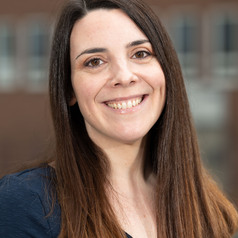
Lorena Fernández de la Cruz
Clinical Researcher, Psychiatric Epidemiology, Karolinska Institutet
I completed my PhD in psychiatry and clinical psychology and defended my thesis with honors in 2013 at the Universitat Autònoma de Barcelona. In my dissertation, I explored the clinical heterogeneity of obsessive-compulsive disorder (OCD) in children and adolescents. For four years, I worked at the Institute of Psychiatry (IoP), King's College London. During my last year at the IoP, I completed a one-year postdoc in the Mood & Development Laboratory at the Department of Child and Adolescent Psychiatry. I moved to Stockholm in 2014 for a second postdoc at the Obsessive-Compulsive and Related Disorders Across the Lifespan research group at the Department of Clinical Neuroscience (CNS), led by Professor David Mataix-Cols, where I started working with psychiatric epidemiology designs. From 2016 to 2019 I was an Assistant Professor (Forskarassistent) in this group and, since 2020, I am a Senior Researcher. I qualified as Docent in Psychology in 2021.
Since September 2018, I am the Equal Treatment Representative (Ombud för Lika Villkor) at CNS. I am also the Dissemination and Outreach Coordinator for BUP Forsknings och Utvecklingscentrum (BUP FoUU) at the Stockholm Mental Health Services (SLSO), Region Stockholm.
Less ![]()
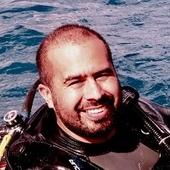
Lorenzo Alvarez-Filip
Professor of Marine Ecology, Universidad Nacional Autónoma de México (UNAM)
Less ![]()
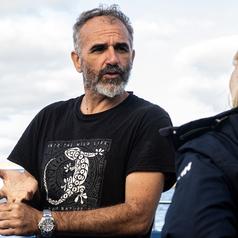
Lorenzo Bramanti
Chargé de Recherches CNRS à l'Observatoire Océanologique de Banyuls, au Laboratoire d'écogéochimie des environnements benthiques, Sorbonne Université
Chargè de recherche CNRS au Laboratoire d'Ecogeoquimie des Environnementes Bentiques (LECOB) au Observatoire océanologique de Banyuls-sur-Mer. Ma ligne de recherche porte sur la conservation, l'écologie, la restauration et la dynamique des populations de filtreurs benthiques, principalement les coraux.
Le cœur de mes recherches réside dans l'application du concept de la Forêt Animale Marine, que j'applique de manière transversale pour répondre aux questions sur l'écologie fonctionnelle et la dynamique de résilience des écosystèmes coralliens.
En Méditerranée, je travaille sur la conservation, la restauration et l'écologie des gorgones, en particulier du précieux corail rouge méditerranéen (Corallium rubrum).
Dans les Caraïbes, je collabore avec la Calfornia State University Northridge sur l'écologie et la dynamique des populations des octocoralliaires dans les îles Vierges américaines.
Dans l'océan Pacifique (Taiwan et Polynésie française), je concentre mes recherches sur la dynamique de récupération des récifs coralliens et les effets de l'acidification des océans.
Ces dernières années, j'ai élargi mes domaines de recherche à l'habitat mésophotique, avec des projets dans le sud de la Sardaigne (Italie), à Moorea (Polynésie française), à Lanzarote (îles Canaries, Espagne) et au Cap-Vert.
À partir de 2022, je suis co-directeur scientifique du programme DEEPLIFE, un programme de 10 ans soutenu par la Décennie des océans de l'ONU qui vise à étudier et découvrir les forêts animales marines mésophotiques, en collaboration avec Under the Pole
Less ![]()

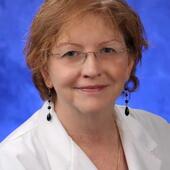
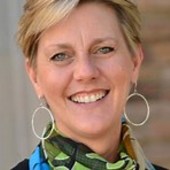
Lori Hunter
Professor of Sociology, Director of the Institute of Behavioral Science, University of Colorado Boulder
Less ![]()
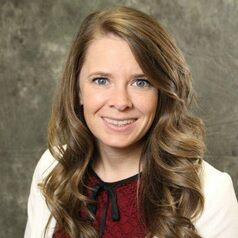
Lori Trudell
Assistant Professor of Entrepreneurship, Clemson University
Dr. Lori Trudell is an Assistant Professor of Entrepreneurship in the Department of Management in the Wilbur O. and Ann Power's College of Business at Clemson University. She received her PhD is Management from the Rawls College of Business at Texas Tech University. She is originally from Georgia and grew up on a South Georgia farm. Growing up on her father's farm taught her to value hard work, integrity, and the value of being a self-starter. She enjoys researching new ventures and start-ups and the many dilemmas they face. Her research specifically focuses on the effects of CEO and TMT decision making, how ventures strategize in the face of crises, and the processes through which ventures survive and thrive. In her free time, she enjoys being outside, hiking, and watching football in the fall.
Less ![]()
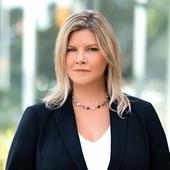
Lori Turnbull
Professor of Political Science in the Faculty of Management at Dalhousie University, Dalhousie University
Less ![]()
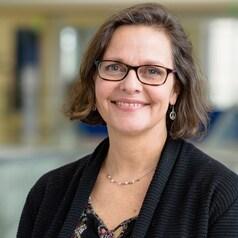
Lori Weeden
Teaching Professor of Environmental Earth and Atmospheric Sciences, UMass Lowell
Lori's expertise is in education specific to climate change, fresh water resources, earth science and general environmental science.
Less ![]()
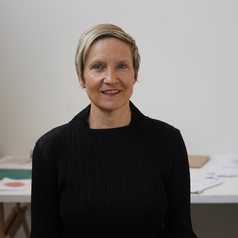
Lori A. Brown
Professor, School of Architecture, Syracuse University
Lori Brown’s research focuses on relationships between architecture and social justice with particular emphasis on gender and its impact upon spatial relationships. Her two books include Feminist Practices: Interdisciplinary Approaches to Women in Architecture and Contested Spaces: Abortion Clinics, Women’s Shelters and Hospitals. Her two current book projects include Birthing Centers, Borders and Bodies and co-editing the Global Encyclopedia of Women in Architecture with Dr. Karen Burns. She is co-founder and director of ArchiteXX, www.architexx.org, a women and architecture group working to bridge the academy and practice in New York City. She is a Professor of Architecture at Syracuse University and a registered architect in New York state.
Less ![]()
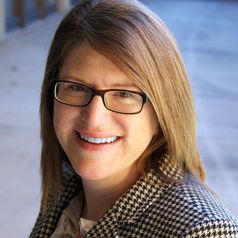
Lori Amber Roessner
Professor in the School of Journalism and Electronic Media, University of Tennessee
A professor at University of Tennessee, Dr. Amber Roessner teaches and studies U.S. media and communication history and its relationship to cultural phenomenon and practices, including the operation of politics, the negotiation of public images and collective memories, and the construction of race, gender, and class.
Less ![]()
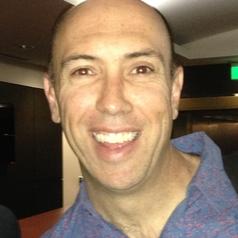
Lorimer Moseley
Professor of Clinical Neurosciences and Foundation Chair in Physiotherapy, University of South Australia
Professor Lorimer Moseley is a clinician and researcher with a special interest in pain and brain sciences. He is author of Painful Yarns. Metaphors & stories to help understand the biology of pain, and co-author of Explain Pain, which is a key text for pain sciences at universities throughout the world, Explain Pain Supercharged. The Clinician's Handbook, Explain Pain Handbook: Protectometer, and the Graded Motor Imagery Handbook.
He completed his doctorate in medicine at the University of Sydney and post-doctorates at the University of Queensland and the University of Sydney. In 2004, he was appointed Nuffield Medical Research Fellow at Oxford University, UK.
He has over 300 scholarly works including articles in Lancet Neurology, JAMA Internal, and multiple papers in PNAS, Current Biology, Brain, PAIN and Neurology. He is Associate Editor of PAIN, the Journal of Pain, the British Journal of Sports Medicine, and the European Journal of Pain.
In 2007, he received the Ulf Lindblom Award, given by the International Association for the Study of Pain to the outstanding mid-career clinical scientist working in a pain-related field. He won the 2012 Marshall & Warren Award for Innovation and potential transformation from the NHMRC and has been recognised with awards for service from physiotherapy or pain societies on every continent. He is now NHMRC Principal Research Fellow, Professor of Clinical Neurosciences & the Foundation Chair in Physiotherapy at the University of South Australia, Adelaide, and Senior Principal Research Fellow at Neuroscience Research Australia. He is a Fellow of the Australian Academy of Health & Medical Science, an Honorary Fellow of the ANZCA Faculty of Pain Medicine, and an Honoured Member of the Australian Physiotherapy Association.
Less ![]()
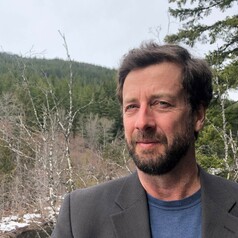
Lorin Busaan
PhD Student, Gustavson School of Business, University of Victoria
Lorin Busaan, PhD student at the Gustavson School of Business, University of Victoria, researches employee ownership under the supervision of Dr. Simon Pek. Lorin’s research is focused on the broader social and environmental impacts from involving employees in business ownership and decision-making. As a recent graduate of the MBA in Sustainable Innovation at the University of Victoria, and with considerable experience in the public (energy and environmental policy) and private sector (energy and construction), Lorin brings a strong practical and policy lens to his academic research.
Less ![]()
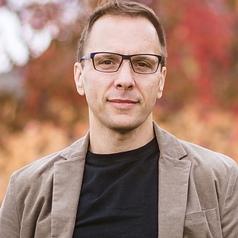
Lorin Yochim
Adjunct Assistant Professor, Faculty of Education, University of Alberta
Dr. Lorin Yochim is a Lecturer and Adjunct Assistant Professor in the Faculty of Education at the University of Alberta. Lorin's teaching focuses on ethics and law of teaching and sociology of education. He pursues a range of research interests, including Chinese education culture, internationalization in higher education, education for reconciliation, and cultural-sociology of minor sport. Previous positions included faculty positions in the Institute of Comparative & International Education at Beijing Normal University and the Faculty of Education at Concordia University of Edmonton.
Less ![]()
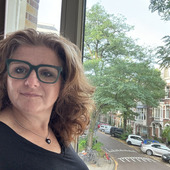
Lorna Berry
Consumer Lead, Centre for Research Excellence in Women's Health in Reproductive Life, Monash University
Less ![]()

Lorna Linch
Principal Lecturer in Physical Geography, University of Brighton
I am a Principal Lecturer in Physical Geography within the School of Applied Sciences (SAS). My teaching and research interests are:
– glacial and periglacial processes
– cold climate geomorphology
– sedimentology and micromorphology
– reconstructing Quaternary Environments
– Arctic blue carbon
– artistic engagement with the environment (art-science).
With a PhD (Queen Mary University of London) and Batchelor with Hons (University of Reading) in Physical Geography, I am passionate about the environment and inspired by the outdoors – particularly mountainous and cold environments. My research has taken me to many exciting, and often breath-taking, locations in both the UK (e.g. Scotland, Wales, Dartmoor, Norfolk, The Lake District etc.) and abroad (e.g. Austria, Arctic Russia, Belgium, Canada, Denmark, Germany, Iceland, Ireland, Japan, Singapore, Svalbard etc).
Less ![]()
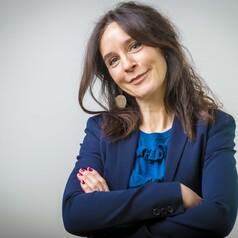
Lorna O'Doherty
Professor of Trauma, Mental Health and Recovery, Coventry University
My research is concerned with intimate partner violence and sexual violence and abuse across the lifespan as major public health problems globally. I am committed to maximising the role of health providers and the NHS in supporting those who have experienced violence and abuse to access equitable and appropriate health care. My work looks at different community and health care-based interventions for survivors of abuse and I have co-led four Cochrane Reviews and randomised controlled trials. I was chief investigator on a national evaluation Sexual Assault Referral Centres, undertaking a cohort study of health, wellbeing and costs for adult and children survivors of sexual assault, abuse and rape (NIHR-funded MESARCH project). I co-designed a research enriched online training course at Coventry University to enhance health care workers' responses to women experiencing gender-based violence during pregnancy. My work has also taken me into the arena of justice for survivors (ESRC-funded JiCSAV project) and currently I am leading the evaluation of UpFront Survivors, a collaboration of frontline services and survivor-activists and artists to promote leadership and training for survivors as part of increasing the voice and visibility of child sexual abuse survivors in cultural, political and social spaces.
Less ![]()
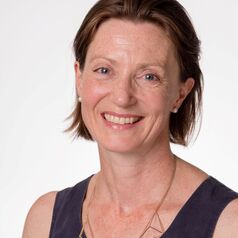
Lorna Smith
Associate Professor in Education, University of Bristol
Associate Professor in Education; PGCE English Coordinator, University of Bristol. Lorna is the co-Convenor of the BERA English in Education SIG and former chair of the National Association for the Teaching of English (NATE) ITE working group. Her latest book, Creativity in the English Curriculum: Historical Perspectives and Future Directions, is published by Routledge.
Less ![]()
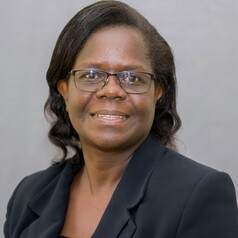
Lorna-Grace Okotto
Professor in Environmental Planning and Management, and Director Board of Postgraduate studies, Jaramogi Oginga Odinga University of Science and Technology
Prof. Lorna-Grace Okotto is the current director of the board of postgraduate studies, at Jaramogi Oginga Odinga University of Science and Technology (JOOUST). She has previously served the same institution as dean of the School of Spatial Planning and Natural Resource Management (SSPNRM), associate director at the Directorate of Research, Partnerships and Linkages, coordinator of research at the Centre for Research Innovation and Technology, as well as a senior lecturer and lecturer at the SSPNRM.
She is passionate about research in water and sanitation with her interest focused in strategies for improving sustainable access to safe water and sanitation for the un-served and inadequately served populations. She has over twenty years’ experience in conducting research in poorly served areas in cities of sub-Saharan Africa including in Ethiopia, Kenya, Uganda and Rwanda. Lorna is also interested in water resources management especially working with local-level institutions and communities to manage water using an integrated approach.
Less ![]()
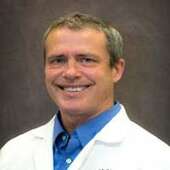
Lorne J. Hofseth
Professor and Associate Dean for Research, College of Pharmacy, University of South Carolina
Less ![]()
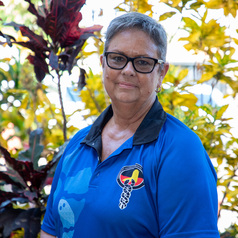
Lorraine Anderson
Medical Director, Kimberley Aboriginal Medical Services, Indigenous Knowledge
Dr Lorraine Anderson is an Aboriginal doctor and Medical Director at Kimberley Aboriginal Medical Services in Broome. Lorraine gained her primary degree in Medicine at The University of Auckland in New Zealand, followed by post graduate qualifications Master of Public Health and Tropical Medicine (James Cook University), Child Health, Palliative Medicine and PG Dip General Practice.
Less ![]()
- Market Data





















